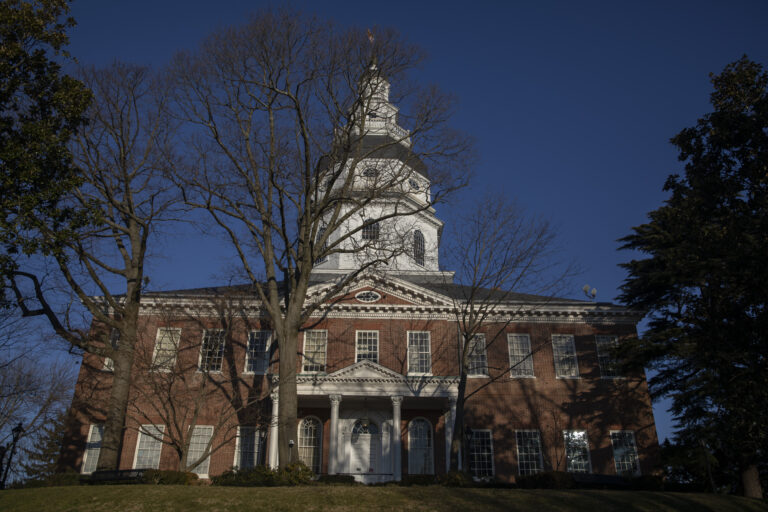Writing and Reporting
A selection of Horus' standout stories.

Gov.-Elect Glenn Youngkin (R) greets a crowd of supporters at a “Nova Thank You” rally on Saturday outside the LCPS Administration Building. (Horus Alas/Times-Mirror)
Virginia Gov.-Elect Glenn Youngkin (R) walked up a flatbed trailer outside the Loudoun County Public Schools Administration Building in Ashburn on Saturday, with a beaming smile and a thumbs up raised in the air.
Dusk had fallen and the temperature hovered in the upper 30s, as hundreds of supporters erupted into cheers and applause as Youngkin took to the stage, from which he spoke for about 25 minutes.
Youngkin thanked Loudoun parents frustrated with the school district’s handling of various issues — including critical race theory, mask and vaccine mandates and a pair of alleged sexual assaults — for their support during his campaign.

Members of the Loudoun County High School NJROTC drill team perform during the school's Veterans Day assembly on Thursday, Nov. 11. (Horus Alas/Times-Mirror)
From a speaker’s platform at the front of the gymnasium at Loudoun County High School in Leesburg, retired Navy SEAL Chief Boatswain's Mate Kenneth Stethem posed a question to a crowd of students, teachers and community members gathered for the school’s 12th Veterans Day assembly on Thursday.
“What is it about the American veteran — these men and women — that causes them to answer the call of duty?” Stethem asked. “... To risk their life and run into danger when other people would run away?”
“I would humbly suggest to you,” he continued, “that it is an understanding and a love of God, country and the ideals that our country is based upon — freedom, liberty and independence.”
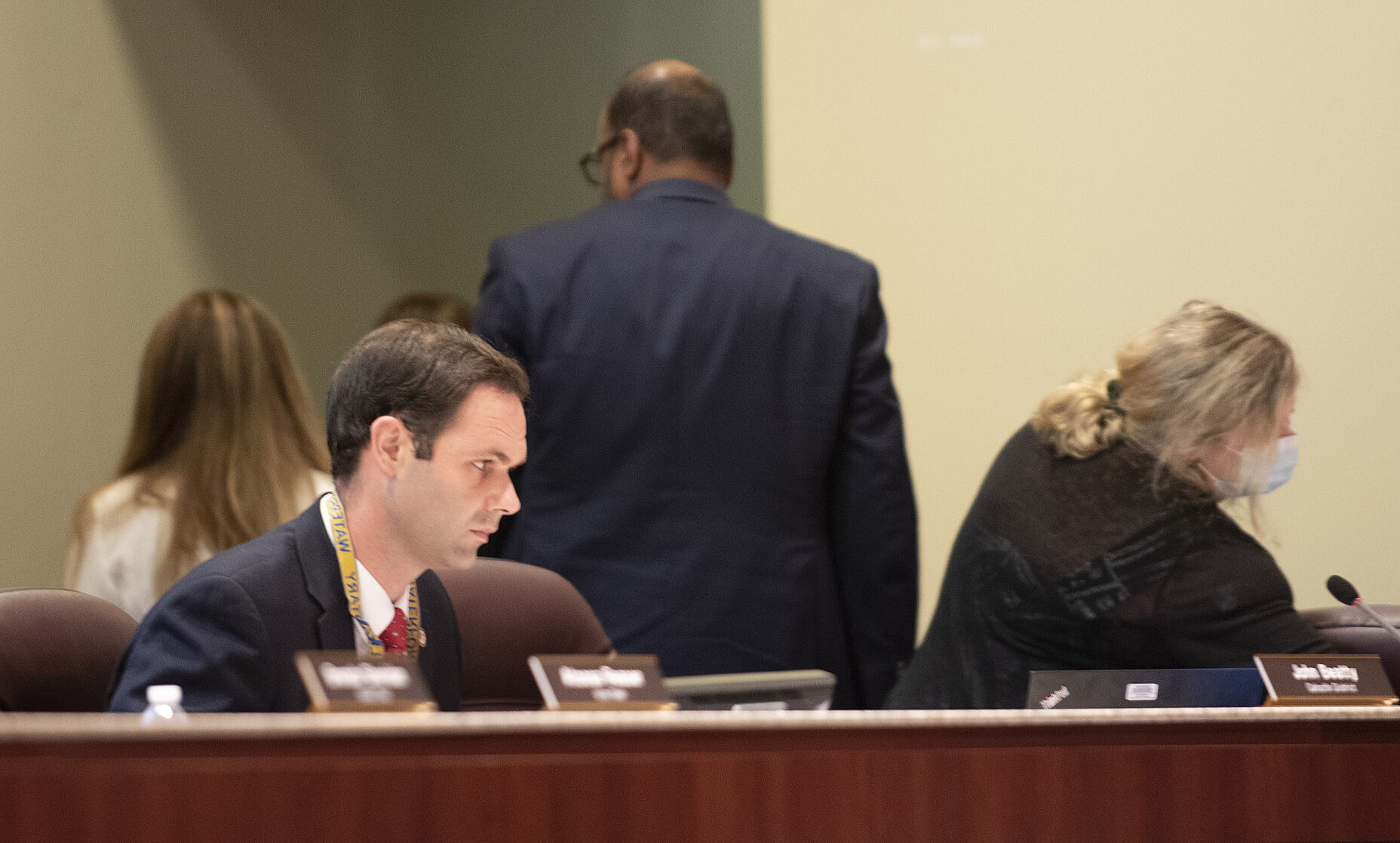
Members of the Loudoun County School Board leave the dais after a series of disruptions by members of the public during the June 22 meeting, which ultimately saw two arrested and the room cleared by Loudoun County Sheriff’s Office deputies. (Graham Cullen/Times-Mirror)
Loudoun County Sheriff Mike Chapman (R) told school officials on Aug. 5 that the sheriff’s office would not provide uniformed deputies for security at two school board meetings in August, even as board members were receiving threats, according to an internal Loudoun County Public Schools letter and emails obtained by the Times-Mirror.
Since the beginning of the current academic year, the Loudoun County Sheriff’s Office has not maintained a presence of uniformed personnel at the LCPS Administration Building in Ashburn, instead leaving the school division to hire private security to provide protection.
Shayanne Summers holds her dog Toph while wrapped in a blanket after several days of staying in a tent at the Milwaukie-Portland Elks Lodge in Oak Grove, Oregon after evacuating from near Molalla, Oregon which was threatened by the Riverside Fire. (John Locher/AP)
Miko Vergun is set to start her third year at Oregon State University this fall. The 20-year-old student, adopted as an infant from her native Marshall Islands, says she's noticed summers getting progressively hotter in Oregon. Vergun says she's especially wary of this year's wildfire season, wondering whether she'll have a future home in the state.
And of the Marshall Islands, she says they and other Pacific Island nations are "frontline communities" facing the real threat of climate change. The chain of volcanic islands are "in danger of going underwater," if appropriate climate action isn't taken, she says. The U.S. Geological Survey says some of the country's islands will be submerged by as early as 2035.
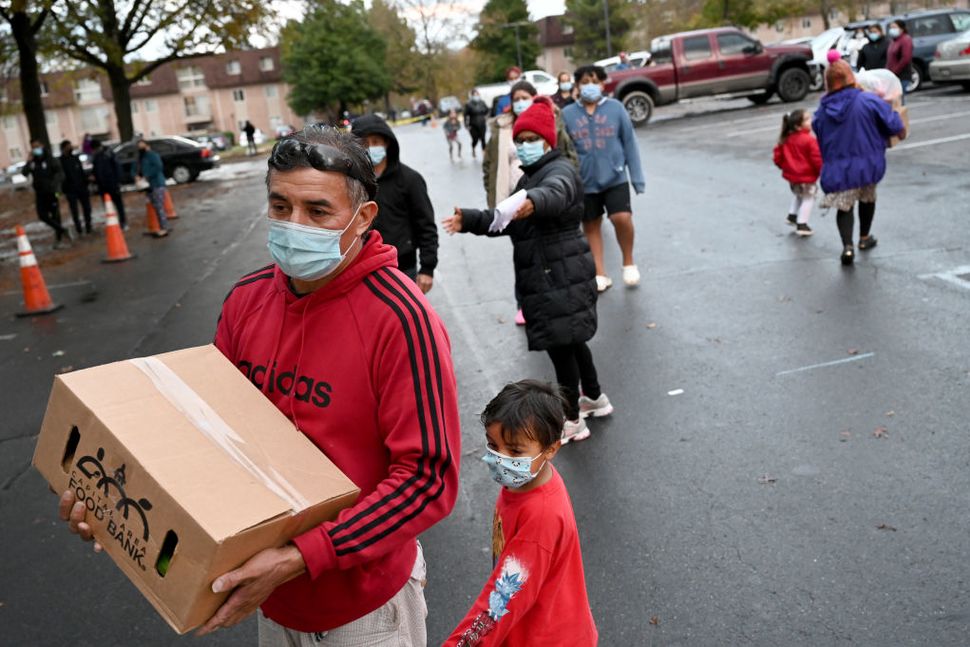
Carlos Ortiz picks up supplies from a weekly food distribution site at the apartment complex where he lives with his son, Jeffrey, on Nov. 1, 2020, in Gaithersburg, Md. (Katherine Frey/The Washington Post via Getty Images)
When the COVID-19 pandemic prompted mass shutdowns and unemployment last spring, policymakers scrambled to keep constituents safe during the virus. One provision in the federal CARES Act established a nationwide, 120-day eviction moratorium for rental properties with federally backed mortgages. But as federal protections for renters lapsed later in the year, state and local jurisdictions also began implementing measures to keep renters housed during the pandemic.
Maryland joins a growing number of states with codified tenant protections, and will establish a program granting low-income tenants access to counsel in eviction proceedings under a bill that became law May 30. After Washington Gov. Jay Inslee signed off on a modified version of a similar bill in April, Maryland became the second state to enact a tenants' counsel bill. On June 10, Connecticut Gov. Ned Lamont signed the nation's third statewide right to counsel bill after it was passed by his state's General Assembly.
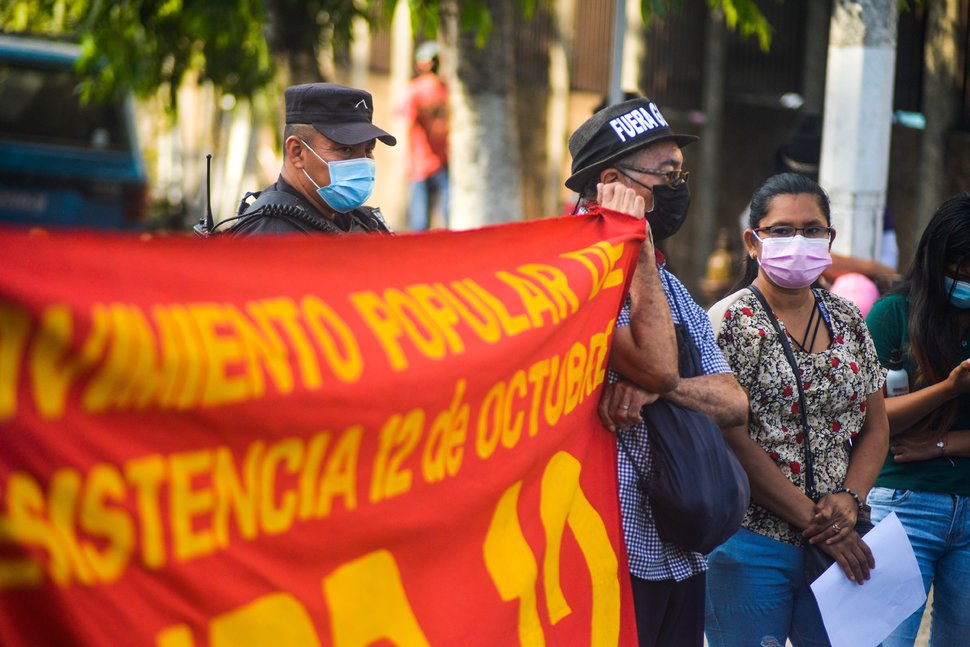
People protest on May 5, 2021, in San Salvador, El Salvador following the government's removal of the country's Supreme Court judges and attorney general. (Camilo Freedman/SOPA Images/Lightrocket via Getty Images)
SANTA TECLA, El Salvador – Critics of President Nayib Bukele aren't surprised by his allied lawmakers' May 1 vote to remove top judges from the country's highest court, which has drawn criticism at home and abroad. Observers have long warned about the possibility of the young president using authoritarian tactics to govern if his party won a majority in the legislature.
"The administration, from the (chief) executive to ministers to high-ranking officials, with respect to the state of legal rights … hasn't ceased to place us on a bit of alert, and perhaps raise wariness in some sectors," Leonardo Ramírez Murcia, the president magistrate of El Salvador's Criminal Supreme Court, told U.S. News in April.
Activists across Maryland have spent months pressuring lawmakers in Annapolis to enact a series of immigration reform bills before the General Assembly’s session ended on Monday. With hours left in the session, they secured two decisive legislative wins.
Before the legislature adjourned at midnight Tuesday, lawmakers passed HB23, which prohibits federal agencies from accessing noncitizens’ driving records without a warrant, and HB16, which prevents Immigration and Customs Enforcement from housing immigrants awaiting deportation in Maryland prisons. (Both passed by slim margins, with several Democrats voting against the measures).

Pro-Trump protesters listen to Alex Jones, host of Infowars, an extreme right-wing program that often traffics in conspiracy theories, during a rally against the results of the U.S. Presidential election outside the Georgia State Capitol in Atlanta on November 18, 2020. (Elijah Nouvelage/Getty Images)
Sharp political polarization. Public distrust of government institutions. A refusal by supporters of a losing candidate to believe election results.
This may describe the United States today, but it also expresses where Mexico was 30 years ago. And the steps that America's immediate neighbor to the south took to restore public confidence in elections may offer a blueprint for how the U.S. can strengthen democratic institutions that political experts say have been under attack for decades.
International political analysts say the experiences of various countries show contrasting paths – for better or for worse – the American experiment in democracy can travel.
JESSUP, Maryland - A cell inside the Howard County Detention Center in Jessup. (Horus Alas/Maryland Matters)
Kevin was pulled over in Landover as he was on his way to work around 6:30 a.m. in June of 2019. He still isn’t sure why he was stopped.
Pedro was pulled over for failure to stop at a stop sign in Greenbelt. Eddy blew out a tire on Maryland Route 32, and expected help from local police officers. Miguel was pulled over in Annapolis and charged with driving without a license.
Each of these men — whose last names are being withheld to protect their privacy — eventually were booked at the Howard County Detention Center in Jessup, under the custody of Immigration and Customs Enforcement.
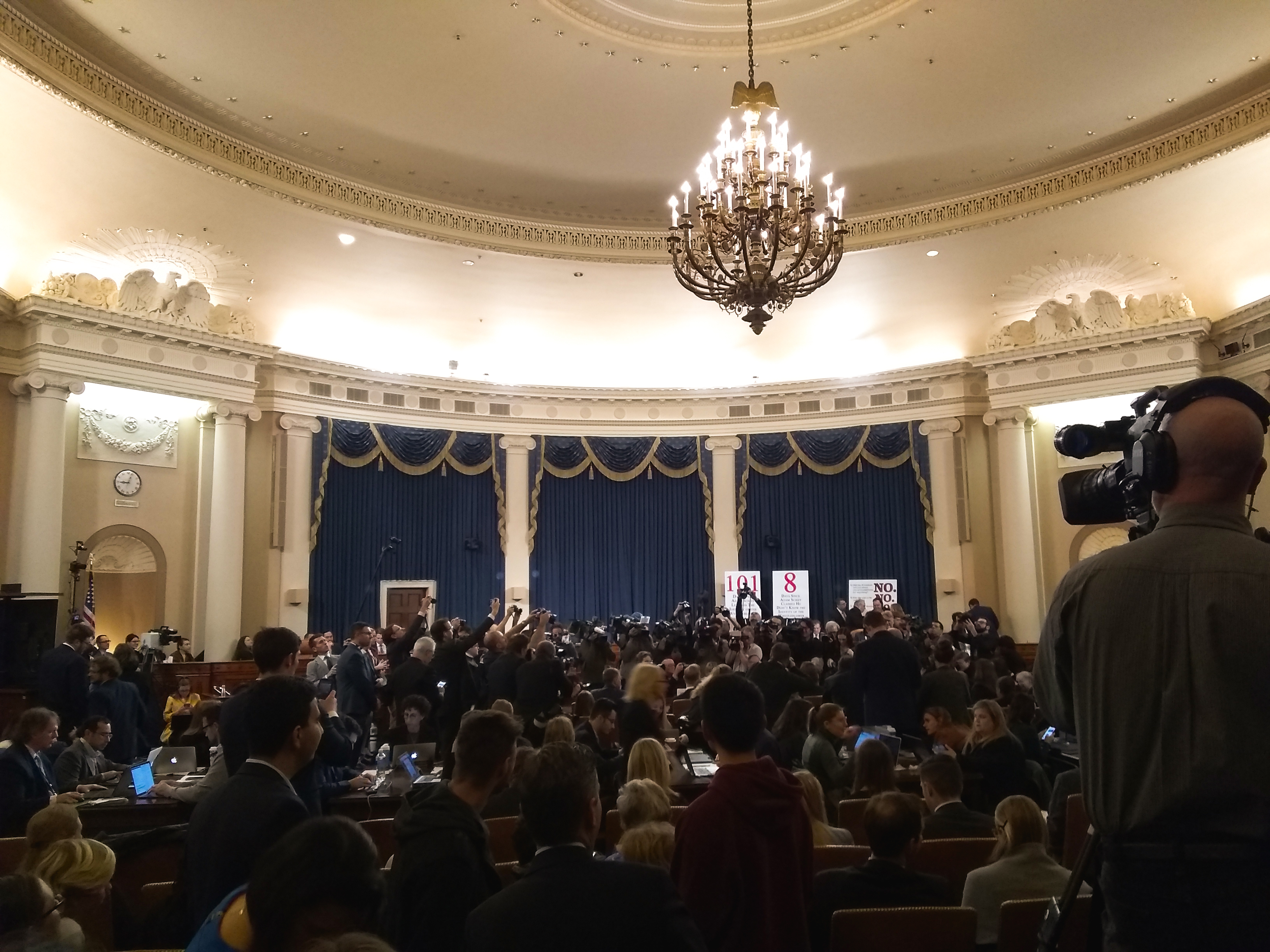
WASHINGTON - Reporters, photographers and members of the public look on as key witnesses Fiona Hill and David Holmes enter the room where the final public impeachment hearing into President Donald Trump was held on Thursday. (Horus Alas/Capital News Service)
WASHINGTON – Former National Security Council Russia expert Fiona Hill and diplomat David Holmes testified in what may be the final public impeachment hearing Thursday, reinforcing previous witnesses’ assertions that President Donald Trump directly linked a White House meeting and military aid to Ukrainian investigations into former Vice President Joe Biden and the 2016 election.
Hill said she realized she had been cut out of diplomatic discussions because, while she was engaged in national security matters, Gordon Sondland, American ambassador to the European Union, was on a “domestic political errand” in Ukraine on behalf of Trump.
